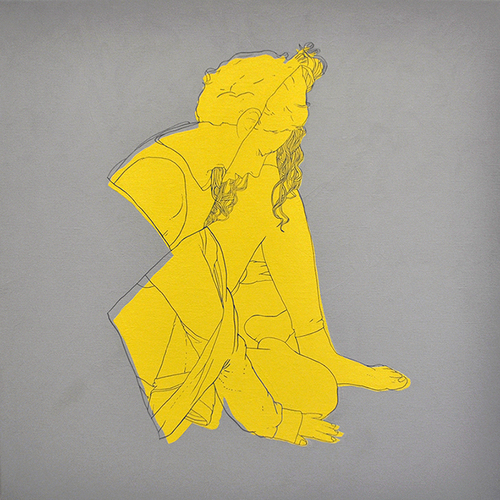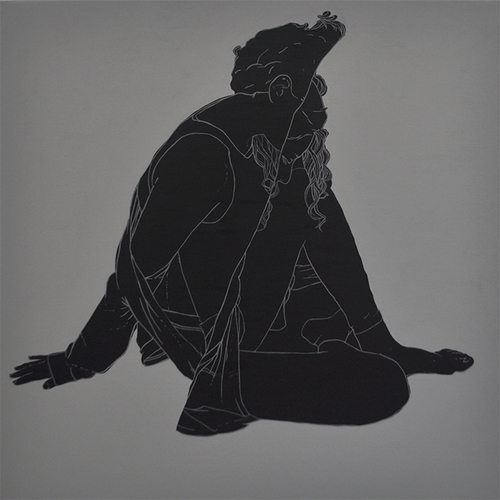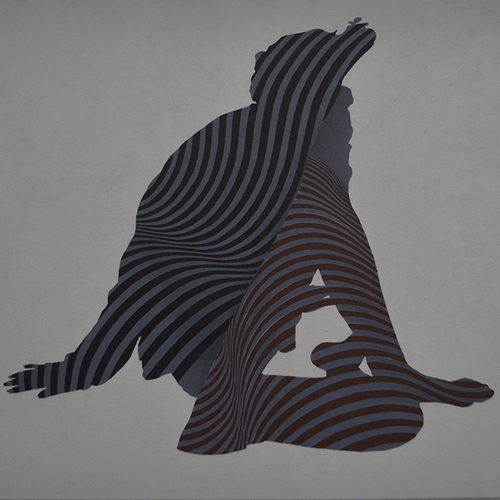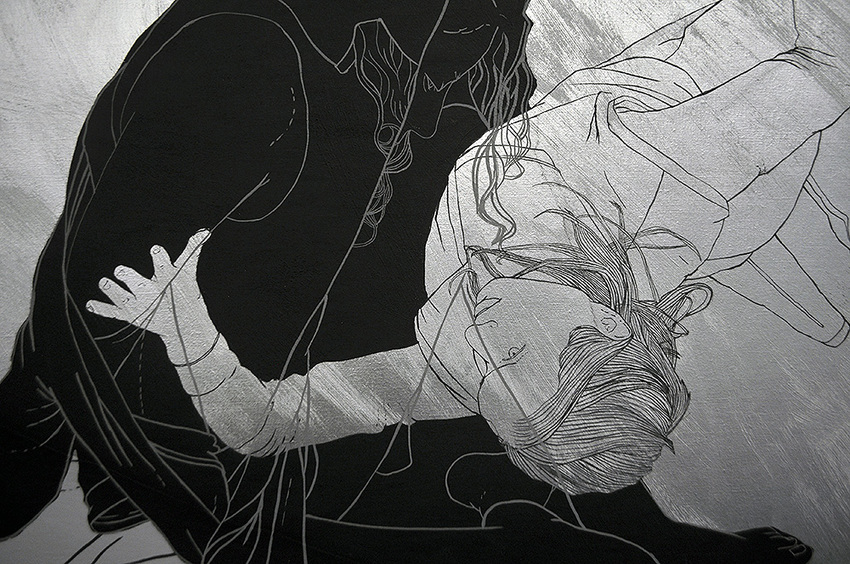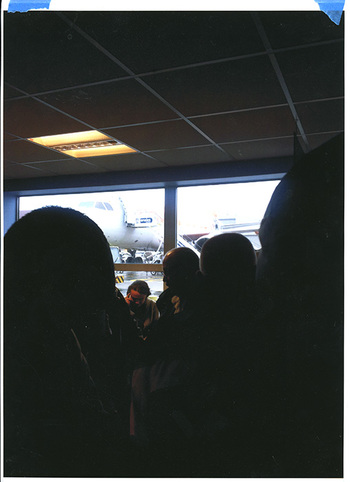
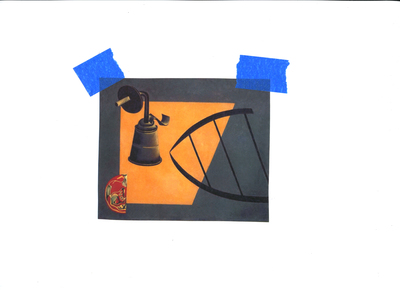

The images, paintings, drawings and prints here were created in close
proximity to each other. The display is reminiscent of the original arrangement of images as they materialized upon the studio wall. The wall functions as a thinking space where the relationship between images is plotted. This trajectory, which is non-linear, is not purely associative.
One of the images that repeat was borne of the chaotic reportage that followed the bombing of the Indian Embassy in Kabul in 2010. A friend posed for me in positions reminiscent to those of a stunned survivor, moments after the blast, picking himself up from the debris, seemingly oblivious to carnage around him.
The paintings and prints and drawings that make this body are explorations within a lexicon of imagery assembled over time. Photographs taken at an airport while waiting to board a flight and scribbles mingle with images taken while on a visit to Srinagar in December 2009. Prints taken while working with a printer in Kumartuli in North Kolkata and an image of undulating lines allow for the emergence of images that cut across subjects. A printout of Joan Miro’s painting, Carbide Lamp (1922) underlines the generation of agency that fuels a progression of images and thoughts.
